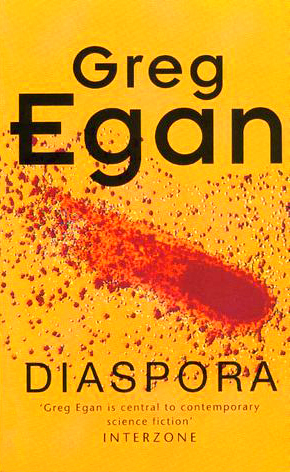
Operating from a growth mindset. Building positive relationships.
It feels like all those years I have spent teaching up until now, have been like an apprenticeship. And it feels now like I have finally arrived at a point of mastery. It has all been worthwhile. By deliberately applying the best research to my teaching practice it has enabled some amazing results to be achieved. The students are leading their own learning as well as helping me with my learning. These are exciting times for me. But there is one problem. I thought my colleagues would be as equally excited. That there would be some level of curiosity. That I would start to hear comments like, “Wow, how come all the children are achieving so well academically and socially?” Or, “How come the children are all so engaged with their learning?” But the silence has been deafening. I have been wondering whether this is an example of the wilful blindness, that I have previously made reference to.
So I have gone back to the drawing board. I’ve decided to see if I could discover the reasons for how this could be. Why is it that the children can be doing so well but I am still be unable to convince my colleagues of this? And as I started to search I began to realise that there is a bigger story to be told. That there is a key element that links my personal experience to how the world functions. I started to see the links between my personal experience and the existence of all the major and minor problems in the world and our inability to acknowledge them or address them successfully. Economic issues come to mind – how to address poverty. Or environmental issues – how to address climate change. There is a universality to these problems. Education is no different.
It seems as though the qualities that set humans apart from other animals; those qualities that have allowed us to achieve such remarkable achievements, are also the qualities that act as the barriers to progress and resolving problems. In respect to education, the research tells us that the biggest impact on learning is the human element – our social qualities, our ability to build relationships. Sure, you need to know the curriculum – some stuff about maths and the mechanics of reading is always going to be useful. But as I am discovering, that is not enough. Because “children don’t care how much you know until they know how much you care.” And that’s why I want to explore how it is that humans have the potential to have the biggest positive impact on learning, but at the same time, also be the biggest barrier. My hope is that once we can acknowledge and understand this dissonance, we may have a better chance of creating the necessary changes and improvements.
A system that is entrenched and resistant to change
The education system we have may not exactly be the best one, but it kind of works – for most people. Or at least, that’s what we tell ourselves. Instead of trying to change the system, we become well practiced at ignoring its inadequacies and blaming the people it doesn’t work for. We label these people as flawed and unresponsive to an adequate system, rather than as an inadequate system being flawed and unresponsive to decent people. A system that has evolved over many centuries is hard to change, even if any rational person can see it is overdue for change. And it is within this narrow framework that teachers are invited to help those who are failing. So inevitably, the actions that result, amount to the equivalent of tinkering at the edges.
This inability to make the required wholesale changes is due to the existence of a condition called ‘path dependence‘. It’s really hard to deviate from a well worn path. The features that exist in the current education system were put in place to serve a function at the time it was created. These features persist even though everything around them has changed. This locked in way of thinking/doing things means that we simply end up hoping that the system we have inherited will evolve sufficiently to be able to deal with modern problems – such as the impact of technological disruption on employment that we are now starting to witness.
Try adopting a proven model?
But maybe there is some hope. If our education system is so deeply flawed maybe we could turn to one of those successful education models that exist already in northern European countries, like Denmark. What’s stopping us from adopting those models as a template of successful alternative pathways and importing them directly? Unfortunately, the reality is that templates don’t work well. A solution imposed from above is less likely to be effective. Change will be successful and sustainable only when it comes about organically and has ‘buy in’ from the users of the system. The end users need to have had a chance to contribute to the creation of the new system.
And you are correct if you are seeing a link between effective and sustainable teaching practice in the classroom and the implementation of effective and sustainable change to the education system at large. At both a macro and a micro level, creating user agency via problem solving, is the name of the game. We all need to be invited to put our thinking hats on and work together as problem solvers. Working together to solve problems is what humans do very well. That is the culture of collaboration that I have generated and get to witness the results of, everyday in my classroom. It is when children are invited to present their best ideas in an authentic and genuine way, that the magic starts to happen. But this kind of collaboration will only be achieved successfully if the environment is conducive. There needs to be a genuine free flowing of ideas. It is a high trust/growth mindset model of teaching. Therefore, it takes confidence and a high level of ability in relationship skills to attain this. These are the very human qualities that are most needed. Teachers need to be encouraged to think and care at the most human level. Because, once again, “children don’t care how much you know until they know how much you care.”
Up scaling this reality from the micro level to the broader, societal level needs to be seen as an achievable goal. To do so, we need a shared vision and shared goals that will promote a self sustaining education system. And via an effective education system we can help create a society that is economically and socially prosperous. The goals need to be able to address these moral and ethical questions at the broadest level. And of course, we need education leaders to inspire us to seek out solutions that will enable us to achieve these goals. Politicians, policy makers and educators need to be held accountable for setting and achieving these goals. Those goals need to be in line with appropriate academic achievement and social well-being targets. National Standards need to be seen as part of the solution, not a cause of the problem. And most importantly, we need to be encouraged to participate in genuine and robust conversations about what needs to take place. Only then will there be a chance for any significant progress to be made.
The art of self delusion and conflict avoidance
But wait, there’s more. Beyond the problem of inheriting an inflexible system and needing to employ very human qualities to create a more desirable system, lies a greater challenge. Humans have many great qualities but unfortunately, honesty is not one of them. Honesty, when it counts, that is. Humans have a propensity for lying. Everybody does it. People are in the habit of lying in their daily lives. I’m not describing the lying of a sociopath, but rather, the self delusional type. Humans are social creatures. The constructive need and desire to fit in, can also be destructive when it takes the shape of saying and doing what you think is desirable rather than, what is correct. It is called a social desirability bias. It means that we tend to rationalise our decisions to suit our own internal narratives and intuition. It means we avoid telling the truth in order to fit in socially and to avoid conflict. You can test this theory by observing your responses when completing a survey. Note how your responses will change depending on whether your response is anonymous or not. That’s because, when we are revealing information about ourselves, we tend to lie.
An effective education system should not be measured by the level of compliance and self congratulation but in its ability to embrace a conflict of ideas and willingness to strive for long lasting improvement for everyone. Dealing with conflict in a constructive way is a very human skill that can be learned and practiced. If used appropriately, it is a skill that will enhance personal relationships and the benefits will flow on into the learning environment in the classroom.
______________________________________________________
Postscript: Still not convinced about the benefits of positive social relationships? According to this research, an emphasis on close personal relationships and face to face interactions is the primary cause of the positive life outcomes and longevity of the people of Sardinia.
Ease Education: Teaching at a human scale.
You can also find Ease Education on Facebook and Twitter.
Inspiration and scientific analysis for this blog post come from the clever people at Freakonomics. See below for the links.
http://freakonomics.com/podcast/earth-2-0-economics-edition-part-1/
http://freakonomics.com/podcast/big-penis-things-ask-google/
Share this:




